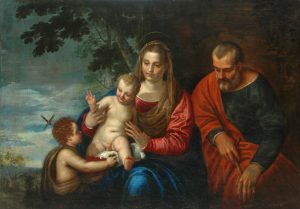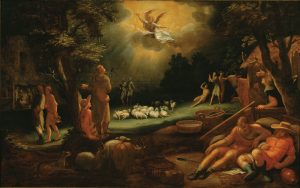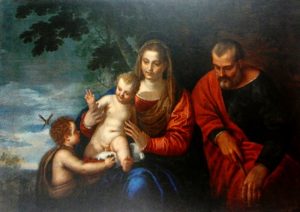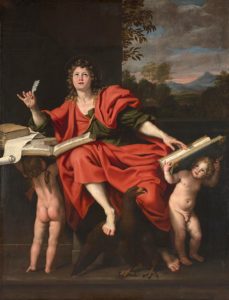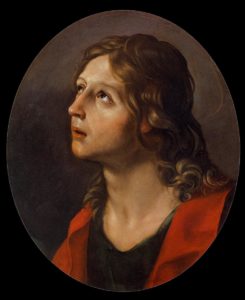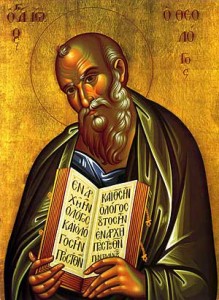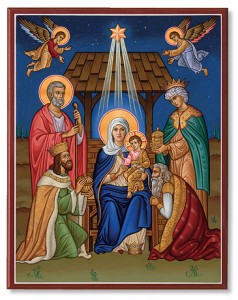Thoughts on Sunday’s Lessons for Dec. 22, 2024
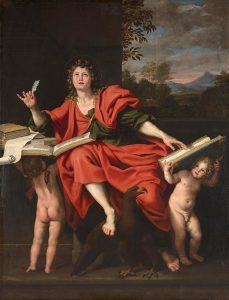
Saint John the Evangelist (c.1624-1629), oil painting on canvas by Domenico Zampieri (“Domenichino,” 1581-1641). National Gallery, Washington, D.C. (Click image to enlarge.)
First Reading: Isaiah 61:10-62:3
The Twelve Days of Christmas continue until the Feast of the Epiphany on January 6. It’s hard to resist the feeling that Christmas was over on December 26, though. We’ll return to work Monday, if we didn’t have to go back already; soon we’ll pack the colorful lights, the Christmas gift boxes and the holiday music. Sunday’s reading, from near the end of the book of Isaiah, finds the people getting back to work too. Returned to Jerusalem after years in exile, they rejoice in God’s righteousness as they face the hard work of rebuilding.
Psalm: Psalm 147
One of the half-dozen resounding songs of joy that conclude the book of Psalms, this memorable hymn begins with a mighty “Praise the Lord,” a shout of exultation that the ancient Hebrews sang as “Hallelu-Yah!” We praise the Lord who is near, who heals our hearts and binds our wounds. We praise the mighty far-off God of all creation, too: The Lord of stars and clouds, winds and waters, rain and the growing grass, all the animals and all of us, too. Praise the Lord! Hallelujah!
Second Reading: Galatians 3:23-25;4:4-7
In his short letter to the Christians of Galatia, a Gentile Christian community in central Turkey, Paul argues in fierce conflict against some in the early church who demanded that gentile converts follow the strict requirements of Jewish law. We should be careful, though, not to interpret these words as anti-Jewish or as suggesting that the new covenant abolishes the old. There is no controversy in his ringing conclusion to this passage, though, celebrating our joy in being adopted without restriction as God’s heirs and children through Christ.
Gospel: John 1:1-18
These spiritual and poetic words that begin the Gospel of John are so familiar that we may hear them without deep thought. But let’s stop to pay attention: Surely John had the creation story from Genesis in mind when he began with the very same words, “In the beginning.” Then he goes on to place Jesus, the Word, at the moment of creation, when God uttered the creative word, “Let there be light.” John names John the Baptist as the witness to Jesus’ divinity, and he echoes Paul’s point about Moses giving the Law while Jesus gives grace.

